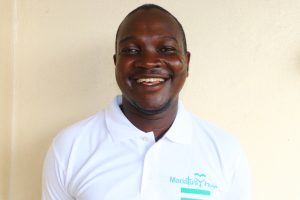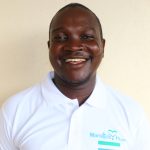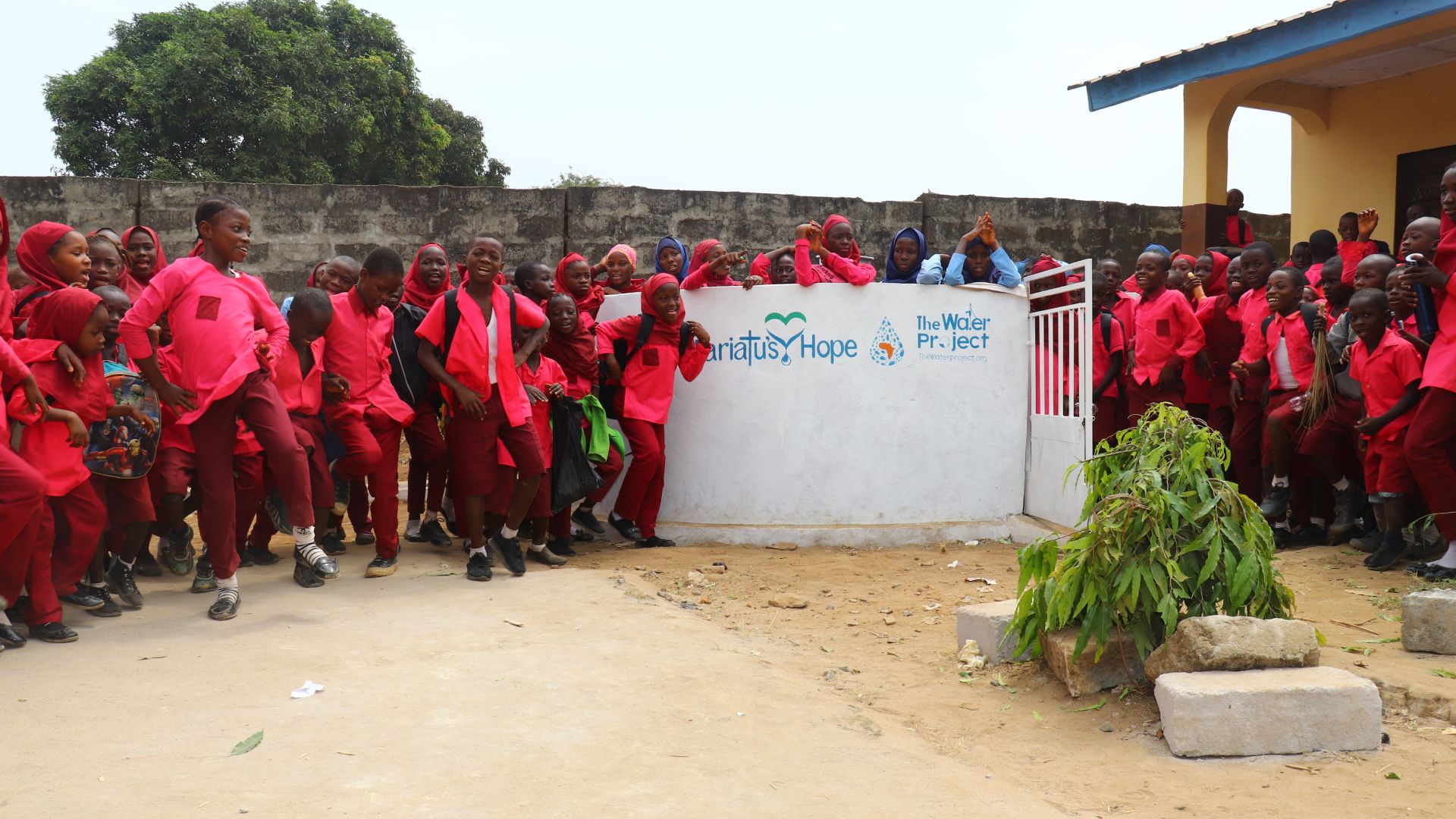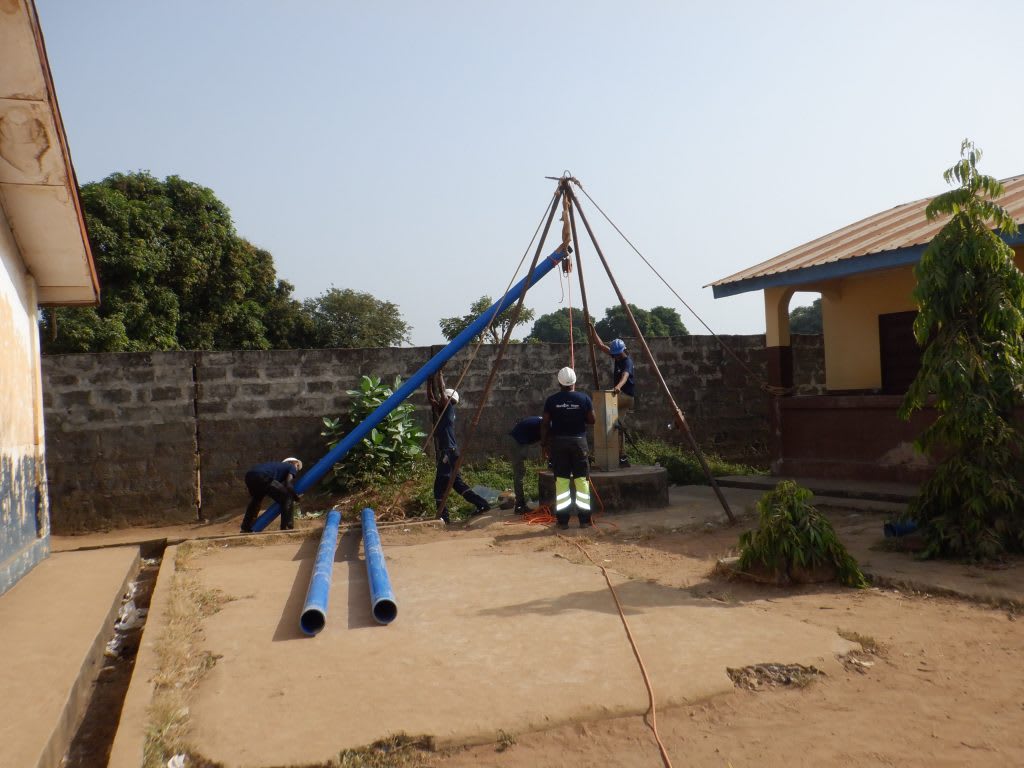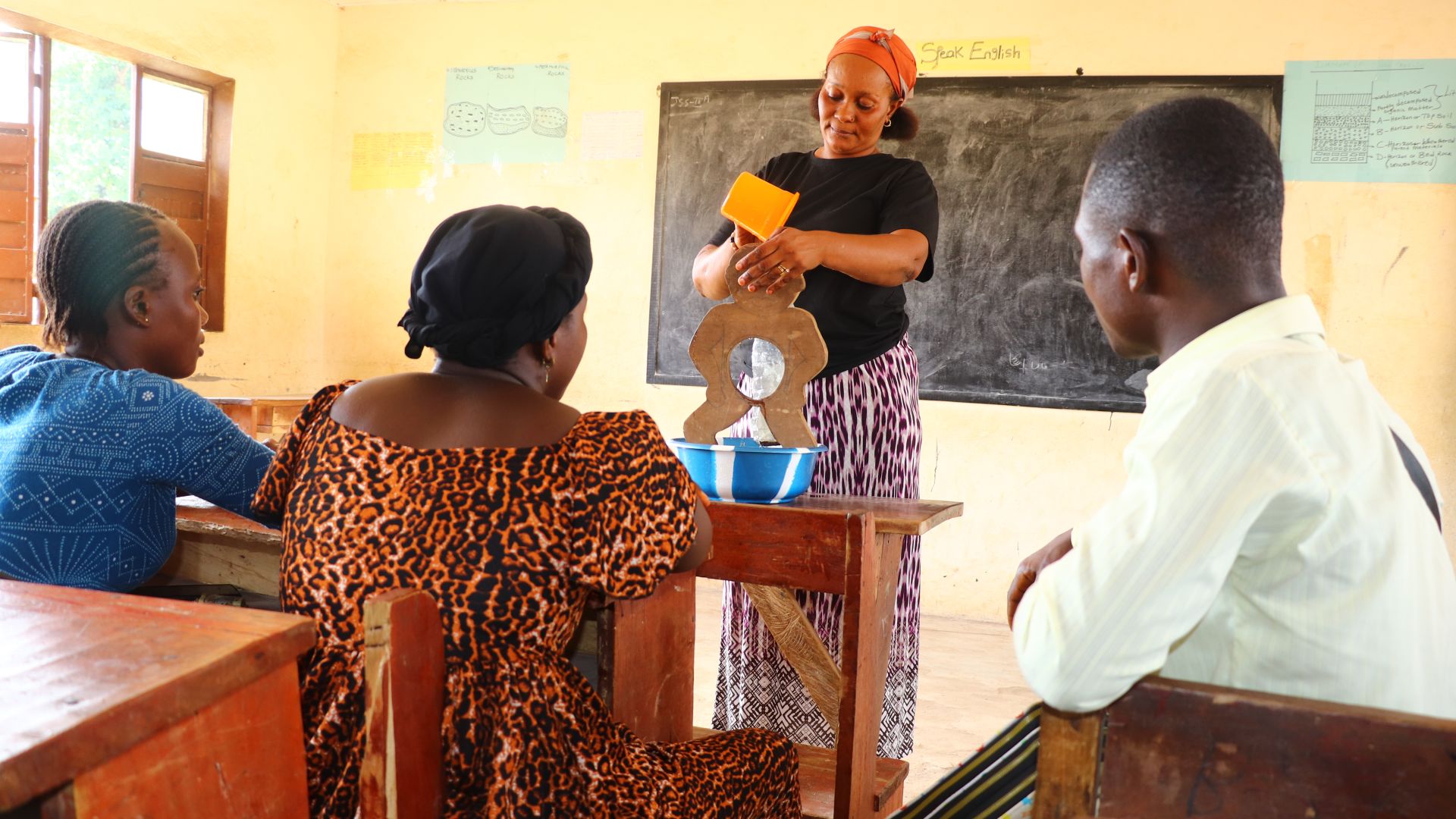The 615 students and 10 staff of Al-Kudus Islamic Primary and Secondary School struggle to access sufficient water. Although they have access to a dug well at the community mosque next door, it runs low for a significant part of the year, leaving everyone scrambling for water. Children end up searching for water from other wells in the community and miss valuable class time as a result.
After attempting to enhance the well themselves, the school's management contacted us to ask for help transforming the nearby protected dug well into a borehole. This will give the school enough water to meet their daily needs without students wandering the community looking for water.

Students playing.
"The waterpoint is too old and dries in the dry season. The persistent breakdown of the waterpoint is another reason that leads to the lack of water at the water source," shared 45-year-old teacher Yannie Kamara.

The well they hope to transform.
"The lack of sufficient water at the school affects the learning of the pupils. As a result, the teachers always find it difficult to look after the children because they always go out of the school premises to fetch water, and hence [this] affects their academic performance. They are always unable to practice good hygiene, especially after using the latrines due to [the] lack of enough water at the school."
The well at the mosque is technically available to the school, but only during specific times of the day. This rationing has debilitating effects on students' education.
"The rationing of water disturbs the learning of the pupils. There is always a fight among pupils on whom to get more water. This always leads to commotion among the pupils and staff during school hours."

Water is important for students and teachers, who do their best to provide a positive learning environment.
"Water is important to me as a teacher because it helps me to have total control of my pupils. The pupils will have total focus when I am presenting lessons to them," said Yannie.

Yannie teaching.
Lack of sufficient water makes good hygiene nearly impossible. Yannie is unable to meet her needs, making her job even harder.
"I cannot use our latrine facilities if there is no waterpoint in the school. With the help of sufficient water, I will be able to use them and practice good hygiene. Water can also help me sustain my life and make me live happily," she concluded.
Steps Toward a Solution
Our technical experts worked with the local community to identify the most effective solution to their water crisis. They decided to drill a borehole well, construct a platform for the well, and attach a hand pump.
Well
Abundant water often lies just beneath our feet. Aquifers—natural underground rivers—flow through layers of sediment and rock, offering a constant supply of safe water. A borehole well is drilled deep into the earth to access this naturally filtered and protected water. We penetrate meters, sometimes even hundreds of meters, of soil, silt, rock, and more to reach the water underground. Once found, we construct a platform for the well and attach a hand pump. The community gains a safe, enclosed water source capable of providing approximately five gallons of water per minute. Learn more here!
School Education & Ownership
Hygiene and sanitation training are integral to our water projects. Training is tailored to each school's specific needs and includes key topics such as proper water handling, improved hygiene practices, disease transmission prevention, and care of the new water point. To ensure lasting impact, we emphasize engagement by students, staff, and community members to maintain their new waterpoint and implement their new knowledge, which encourages a sense of ownership and responsibility.
Safe water and improved hygiene habits foster a healthier future for everyone in the school and surrounding community.

 Borehole Well and Hand Pump
Borehole Well and Hand Pump









